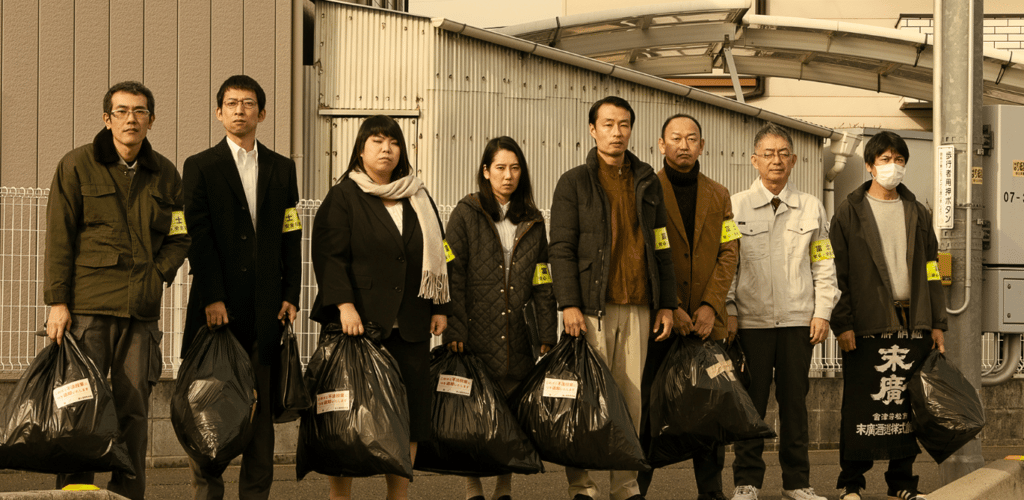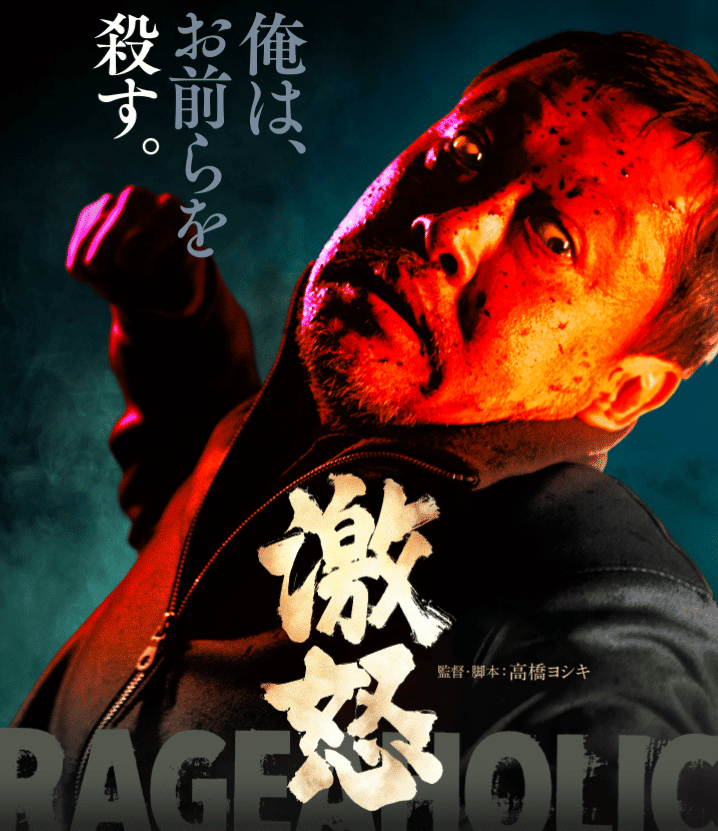
We’ll start this feature with a part-confession, but hopefully a relevant one. Speaking from the perspective of a Westerner to (by and large) other Westerners, here it is: many of us will hold, or at least recognise certain stereotypes about the Japanese character. If we take one of these at face value, we might acknowledge the idea of the Japanese having a clearly-defined sense of civic duty: we often regard them as scrupulous, well-mannered and hugely averse to conflict, preferring to openly follow social and cultural expectations. Remember the deep bows of humility in Cold Fish (2010), when Syamoto’s teenage daughter transgresses? That’s an example which leaps to mind. As it happens, Yoshiki Takahashi, the co-writer of Cold Fish, is the writer and director of Rageaholic (Gekido) 2022, a film which itself questions aspects of this urge to conform. In doing so, it takes that urge even further: whilst almost dystopian in places, it is by and large a social commentary which relies on fantasy elements to express some very real concerns. Sometimes darkly funny, sometimes hyper-violent, it certainly dispenses with the stereotype above; it’s a very angry film altogether.
The Japan of Rageaholic is more than just scrupulous – it is a full-on surveillance state, obsessed with enforcing all manner of rules. This is particularly noteworthy in the town of Fujimi. Fukama (Yôta Kawase) is a hard-bitten cop character – you know the type, long coat and perpetual cigarette – but he quite happily moonlights on the fringes of an underworld which isn’t officially meant to exist (the police chief has a framed article which congratulates her on ridding Fujimi of all yakuza elements). However, even if we assume that Fukama has been successfully holding duty and pleasure in balance, the balance is about to come to an end during one frantic night where his temper gets the better of him. He then undergoes mandatory psychiatric rehabilitation in the US (presumably in recognition of how the US is a world leader in promoting the power of therapy), spending three years in this foreign system.
On release, he is permitted to return to work under supervision, but he is alarmed to see that Fujimi has gone even further into the realms of zero tolerance in his absence. In fact, there seems to be very little of his old life left; in tracking down his old buddies, Fukama truly comes to understand the extent of these changes. Fujimi is dying: bars and businesses are closed, the streets are deserted and the only sound comes from a speaker, imploring people to obey the rules. It’s not bad advice, to be fair; anyone who transgresses can expect a visit from the Community Safety Patrol, now a kind of parallel police force which enjoys acting with complete impunity. These people may be clowns, but they’re powerful clowns, and what could be more terrifying?
Pardon the second reference to Cold Fish, but in common with Syamoto in that film, Fukama becomes a kind of everyman, for all his flaws: it would be overstating things to compare him too closely to Alex in A Clockwork Orange (1971) but nonetheless, you find yourself rooting for him, hoping that there’s enough of his old cruelty in there to see him through an otherwise fraught, dangerous situation as the community turns its attentions to him. The film itself has a gritty, often lo-fi feel to it which is no doubt down to its comparatively small budget as much as a stylistic choice, but its lack of gloss works for it as much as, occasionally, against it: as much as some of the ultraviolent scenes are crying out to be dressed up, overall the film matches the world it examines, which is often an invisible world of poverty and outsidership. The film also takes aim at superficiality, such as in how it questions the redeployment of the word ‘community’ to mean anything from status, surveillance to all-out threat. It’s a similar idea to the ‘greater good’ espoused in Hot Fuzz (2007) – control dressed up as concern.
The world of the film is not intended to be more than a few steps along the line; accordingly, there’s a genuine sense of frustration about modern Japan here. It’s economical for the most part, but it’s a well-drawn drama which layers its social commentary with moments of grisly, cathartic content. There’s an element of ‘be careful what you wish for’ in Rageaholic.
Rageaholic (2022) is on cinematic release in Japan now: watch this space for further announcements.
